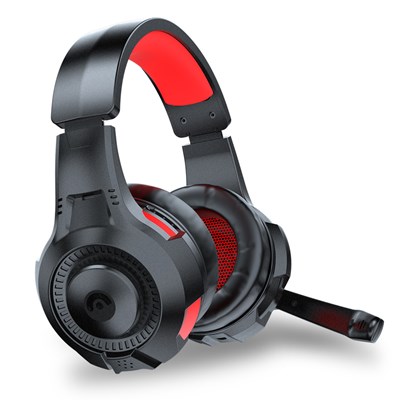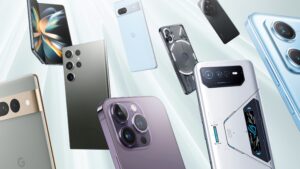The Ultimate Showdown: 5 Reasons Why Wired Charging Still Reigns Supreme
Related Articles: The Ultimate Showdown: 5 Reasons Why Wired Charging Still Reigns Supreme
- Ultimate Showdown: 5 Gaming Smartphones Put To The Test!
- The Ultimate 5 Reasons Why Mid-Range Phones Are Crushing Flagships
- Astonishing Battery Life: 5 Smartphones That Will Keep You Going All Day (and Beyond)
- 5 Unstoppable Smartphones For Effortless Multitasking
- 5 Amazingly Powerful Smartphones That Won’t Break The Bank
Introduction
With great pleasure, we will explore the intriguing topic related to The Ultimate Showdown: 5 Reasons Why Wired Charging Still Reigns Supreme. Let’s weave interesting information and offer fresh perspectives to the readers.
Table of Content
The Ultimate Showdown: 5 Reasons Why Wired Charging Still Reigns Supreme

In the ever-evolving world of mobile technology, the quest for faster and more convenient charging solutions continues. Two prominent contenders have emerged: wired charging and wireless charging. While wireless charging offers a certain level of convenience, wired charging still holds a significant advantage in terms of speed, efficiency, and overall power delivery. This article delves into the core differences between these charging methods, exploring why wired charging remains the superior choice for many users.
The Rise of Wireless Charging: A Convenient Illusion?
Wireless charging, with its seemingly effortless approach to recharging devices, has captured the imagination of many. The allure of simply placing a device on a charging pad, free from the constraints of cables, is undeniably enticing. However, the reality of wireless charging falls short of its perceived convenience, often plagued by limitations that hinder its true potential.
1. Speed: Wired Charging Takes the Lead
One of the most significant shortcomings of wireless charging is its significantly slower charging speed compared to wired charging. While advancements in wireless charging technology have led to faster charging speeds, they still lag behind wired counterparts.
For instance, the latest wired charging standards, such as Qualcomm Quick Charge 5, can deliver up to 100W of power, allowing for a full charge in mere minutes. In contrast, wireless charging, even with the advent of technologies like Qi 2.0, struggles to reach 15W of power output. This disparity translates to a substantial difference in charging time, making wired charging the clear winner for users who prioritize speed.
2. Efficiency: The Power of Direct Connection
Wired charging offers a direct and efficient energy transfer pathway, minimizing energy loss during the charging process. The electrical current flows seamlessly from the charger to the device, ensuring maximum power delivery.
Wireless charging, on the other hand, relies on electromagnetic induction, a process that involves converting electrical energy into electromagnetic waves and then back into electrical energy. This conversion process inevitably results in energy loss, leading to lower charging efficiency.
3. Heat Dissipation: Wired Charging Wins the Cooling Battle
The energy conversion process involved in wireless charging generates significant heat, which can potentially damage the device or shorten its battery life. While wireless charging pads incorporate heat dissipation mechanisms, they often struggle to manage the heat effectively, especially during high-power charging.
Wired charging, with its direct connection, allows for more efficient heat dissipation. The cable acts as a heat sink, absorbing excess heat generated during the charging process, preventing overheating and protecting the device.
4. Versatility: Wired Charging Adapts to Any Situation
Wired charging offers unparalleled versatility, catering to a wider range of charging scenarios. Users can charge their devices while on the go, using portable power banks or car chargers, without relying on dedicated charging pads.

Wireless charging, in contrast, requires a dedicated charging pad, limiting its usability in certain situations. The need for a flat surface and a specific orientation can make wireless charging inconvenient for users who are constantly on the move.
5. Cost: Wired Charging Offers Greater Value
Wired charging remains significantly more affordable than wireless charging. While the price gap between wired and wireless chargers has narrowed in recent years, wired charging still offers a more budget-friendly option, especially for users who prioritize cost-effectiveness.
The Future of Wireless Charging: A Promising Path
While wired charging currently holds the upper hand, wireless charging technology continues to evolve, promising a future where it could potentially overcome its current limitations. Advancements in charging technologies like magnetic resonance charging and near-field communication could lead to faster, more efficient, and versatile wireless charging solutions.
Conclusion: Choosing the Right Charging Method
The choice between wired and wireless charging ultimately depends on individual needs and priorities. For users who prioritize speed, efficiency, and affordability, wired charging remains the optimal choice. However, for those who value convenience and a clutter-free charging experience, wireless charging can be a viable alternative.
Beyond the Basics: Exploring the Nuances
The debate between wired and wireless charging extends beyond the core differences discussed above. Several factors can influence the charging experience and ultimately determine the best charging method for a particular user.
1. Charging Speed: A Deeper Dive
While wired charging generally offers faster charging speeds, the specific charging time varies depending on several factors, including:
- Charger Power Output: Higher power output chargers deliver more power, resulting in faster charging times.
- Device Battery Capacity: Larger battery capacity devices require more time to charge.
- Charging Protocol: Different charging protocols, such as Qualcomm Quick Charge and USB Power Delivery, optimize power delivery for faster charging.

2. Wireless Charging Standards: A Look at the Options
Wireless charging standards play a crucial role in determining compatibility and charging speeds. The most common standard is Qi, which is supported by a wide range of devices. However, newer standards, such as Qi 2.0, offer faster charging speeds and improved efficiency.
3. Compatibility: Ensuring a Seamless Connection
Compatibility is a crucial factor when considering wireless charging. Not all devices support wireless charging, and even those that do may not be compatible with all charging pads. It’s essential to check device specifications and charging pad compatibility before making a purchase.
4. Charging Efficiency: The Importance of Optimization
The efficiency of wireless charging is influenced by several factors, including:
- Charging Distance: The closer the device is to the charging pad, the more efficient the energy transfer.
- Foreign Objects: Metal objects placed between the device and the charging pad can interfere with the electromagnetic field, reducing efficiency.
- Charging Pad Quality: High-quality charging pads with efficient energy conversion mechanisms offer better charging efficiency.
5. Safety: Considerations for Wireless Charging
Wireless charging, while generally safe, poses certain safety concerns.
- Heat Generation: The heat generated during wireless charging can be a safety hazard if not properly managed.
- Electromagnetic Interference: Wireless charging can interfere with other electronic devices, especially those sensitive to electromagnetic fields.
The Future of Charging: A Hybrid Approach
As wireless charging technology continues to improve, we may see a future where wired and wireless charging coexist seamlessly, offering the best of both worlds. Hybrid charging solutions, combining the speed and efficiency of wired charging with the convenience of wireless charging, could become the norm.
Conclusion: Making the Right Choice
Ultimately, the choice between wired and wireless charging is a personal one, influenced by individual preferences and needs. Wired charging offers the advantage of speed, efficiency, and versatility, while wireless charging provides convenience and a clutter-free experience. By understanding the pros and cons of each charging method, users can make an informed decision that aligns with their specific requirements. The future of charging promises exciting advancements, offering users a wider range of options and an increasingly seamless charging experience.
Closure
Thus, we hope this article has provided valuable insights into The Ultimate Showdown: 5 Reasons Why Wired Charging Still Reigns Supreme. We appreciate your attention to our article. See you in our next article!
google.com




